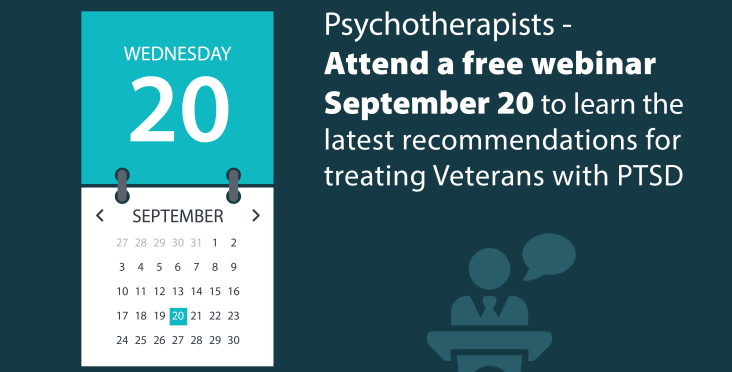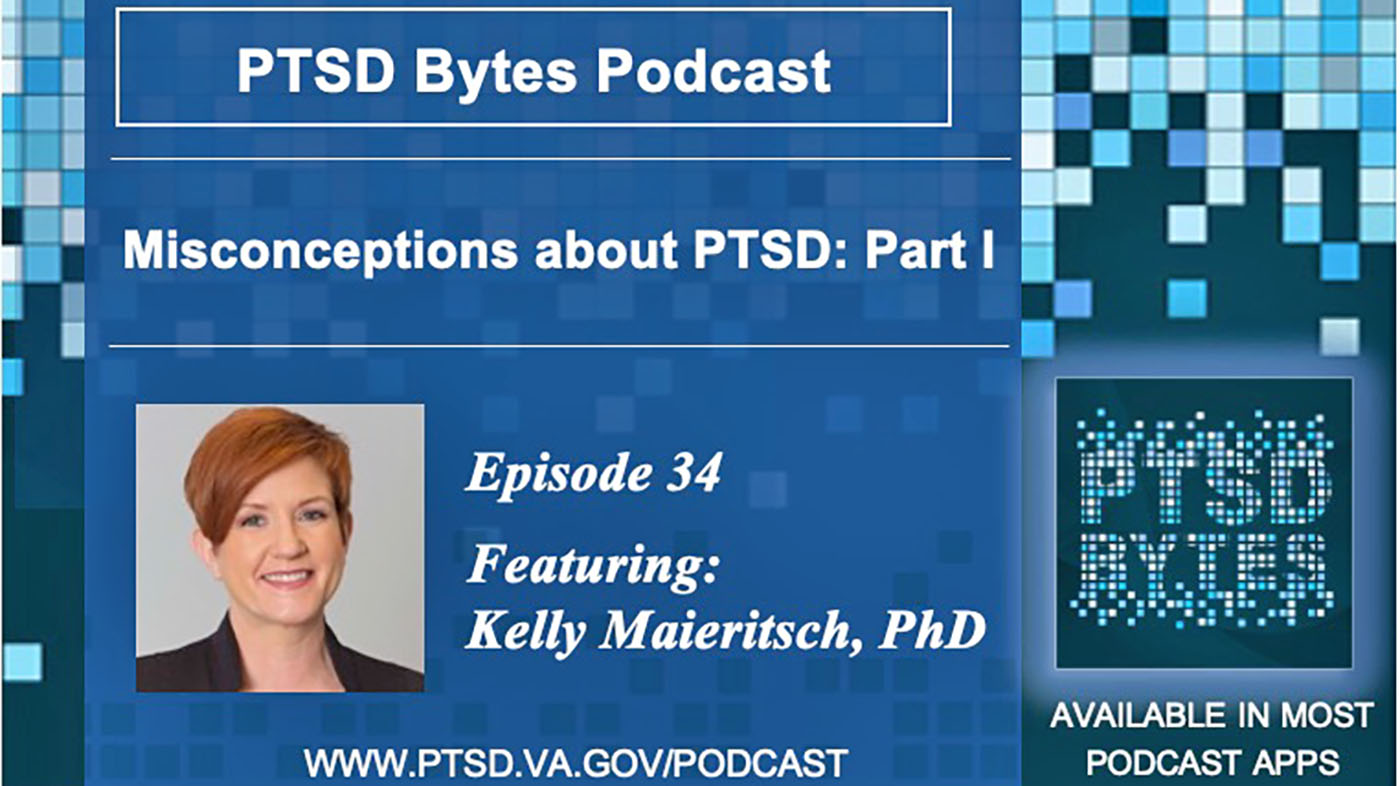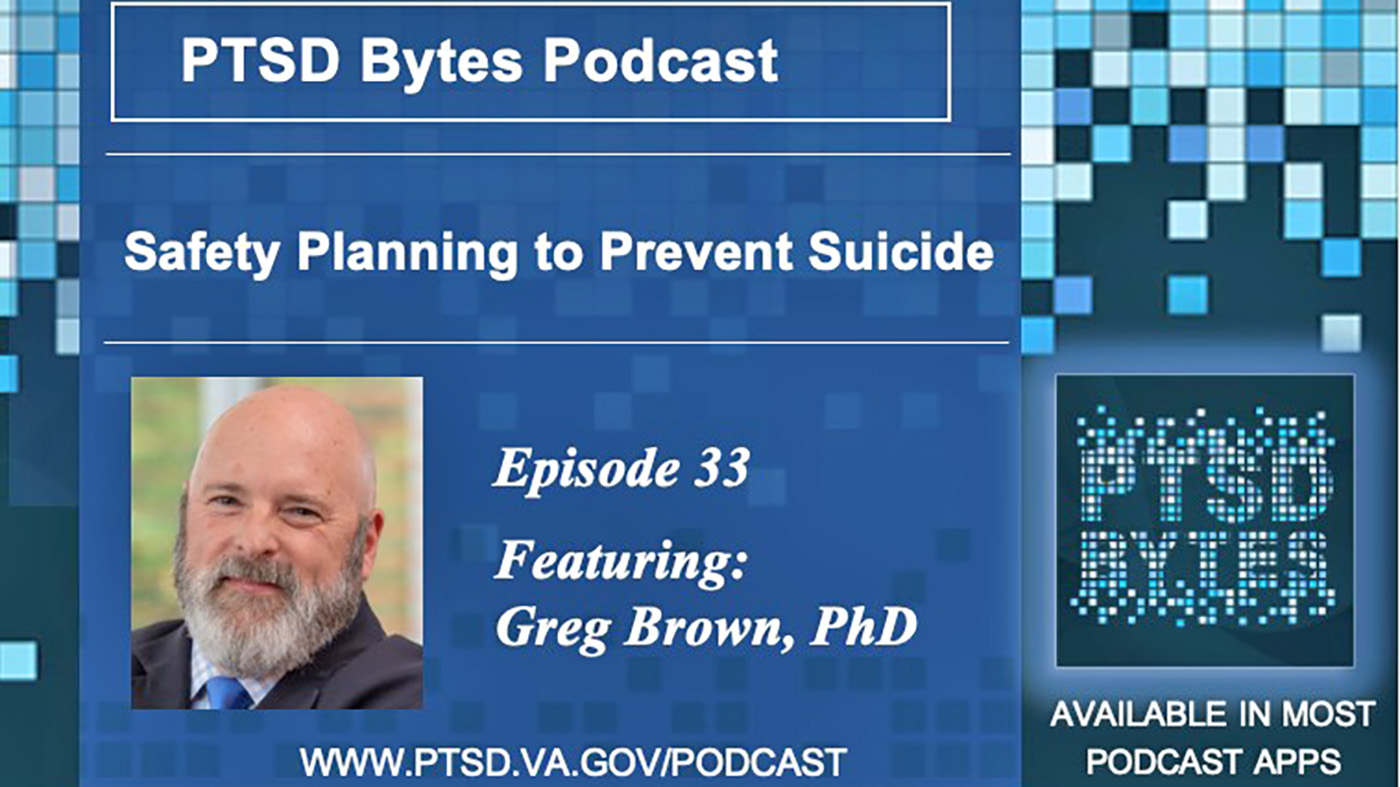Clinicians and researchers from VA and Department of Defense (DoD) recently revised the Clinical Practice Guideline (CPG) for the Management of Posttraumatic Stress Disorder and Acute Stress Reaction. This guideline provides a comprehensive look at the best evidence-based treatments available for treating PTSD. The recommendations are based on the most up to date research on psychotherapy and medication for the treatment of PTSD.
Over the next three months, the VA PTSD Consultation Program is offering three free online webinars with free continuing education credit that will help providers interpret and apply the PTSD CPG:
- The 2017 Revised Clinical Practice Guideline for PTSD: Recommendations for Psychotherapy on Sept. 20, 2017 at 2 p.m. ET.
Jessica Hamblen, acting deputy executive director of the National Center for PTSD will describe the psychotherapy options for PTSD and which are most effective in reducing PTSD symptoms. - The 2017 Revised Clinical Practice Guideline for PTSD: Recommendations for Medications on Oct. 18, 2017 at 2 p.m. ET. While medications are not the most highly recommended therapy for treating PTSD, there are many medications that can help reduce PTSD symptoms, as well as depression and anxiety. Join Dr. Matthew Friedman, senior advisor to the National Center for PTSD and clinician for over 30 years, for an overview on which medications to use/avoid with treatment patients with PTSD.
- The 2017 Revised Clinical Practice Guideline for PTSD: Why It Matters for Primary Care Providers and What Resources Are Available on Nov. 15, 2017 at 2 p.m. ET. Primary Care providers are often the first clinicians to treat a patient with PTSD and the Practice Guideline can help providers make the right decisions to ensure their patients get proper treatment and early intervention. “Many primary Care providers don’t realize how much of an impact they can have on a patient with PTSD. My hope is that they use the CPG to feel more confident in working with Veterans with PTSD,” notes Nancy Bernardy, one of the webinar presenters.
Whether you are a psychiatrist or psychotherapist, the practice guideline can help guide your treatment of PTSD. I also urge you to contact the PTSD Consultation Program if you ever have a question related to treating Veterans with PTSD, the Clinical Practice Guideline, or how to implement the guideline’s recommendations in your practice. Our PTSD experts are a quick phone call (866-948-7880) or email (PTSDconsult@va.gov) away.
I encourage you to register for these upcoming webinars and download the guidelines to use with your patients. With your help, we can ensure Veterans receive the best treatment possible for their PTSD symptoms and reduce the number of Veterans living with PTSD.

Topics in this story
More Stories
Be ready before a suicide crisis by learning about resources that are available. You don’t have to face it alone.
In a two-part series, Dr. Colleen Becket-Davenport discusses some common myths surrounding PTSD with Dr. Kelly Maieritsch.
In this episode of the PTSD Bytes podcast, we speak with with Dr. Greg Brown, Philadelphia VA clinical psychologist, about how safety planning can prevent suicide.







I just read about the PTSD PROGRAM and wanted to know where is going to hell, I am in Charleston SC
Mr Evans